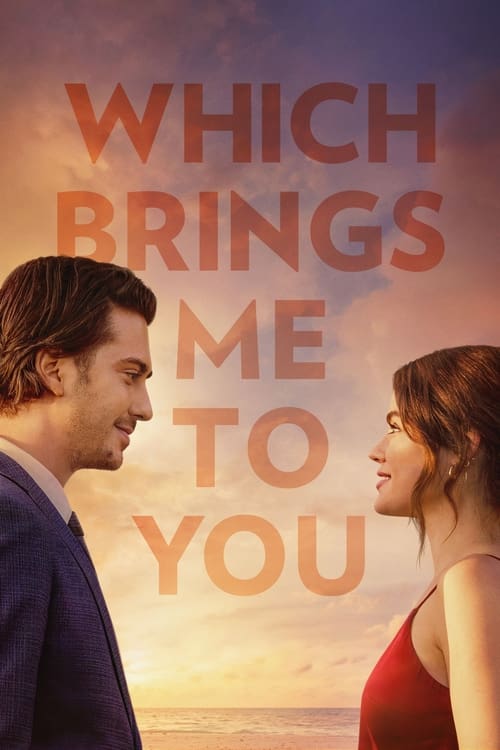Which Brings Me To You – Film Review
Published January 22, 2024

A sweet narrative unfurls across a generous canvas of over a hundred minutes, held together by tender performances and lovingly written lines. Peter Hutchings‘ adaptation of Steve Almond and Julianna Baggott‘s novel, Which Brings Me To You, veers off the beaten track of regular rom-com terrain and wades into territory often explored in quirky independent cinema. It revolves around Jane, a journalist (played by Lucy Hale), and Will, a photographer (played by Nat Wolff), whose chance meeting at a friend’s wedding evolves into a game of trading histories of romantic blunders, sensual embarrassments, and heartbreaks.
Nat Wolff slips seamlessly into Will’s shoes. His warmth oozes off the screen and leaves a noticeable imprint in moments of melancholy as well as moments of jest. He injects humor with ease into the stories of Will’s intimate awkwardness while also shedding his outer cheeriness to give us glimpses into a deeper hurt he harbors.
Lucy Hale, as Jane, takes the wheel with earnest charm and maturity. Jane’s ambitious personality isn’t stereotyped, a commendable achievement by Hale who delicately unveils the many layers of a career-oriented woman while finding and losing love. Their first encounter sets the tone for the flick’s offbeat treatment of an age-old subject.
Despite engaging performances from its leads, the narrative falters in areas, largely because of its jagged transition between present-day reality and shared tales from the past. This fragmented timeline tends to disengage the viewer, resulting in missed emotional punches that were presumably intended to move or engage.
Keith Bunin‘s adaptation of the original story starts strong, mirroring the verve of the leads’ connection and the offbeat humor that gets thrown into the mix. But as the screenplay progresses, the humor thins, and a saccharine taste takes over, culminating in an ending that leans on cliches and hushed introspections, instead of sticking to the effervescent charm that kicked things off.
Nevertheless, Bunin does a good job bringing depth to Jane and Will’s stories, considering each tale feels as carefully crafted as a short film. Even the raunchier episodes are tastefully shot, creating humor without sacrificing emotion or authenticity. Bunin successfully navigates a sexual discourse, sprinkling humor, pain, and wisdom in balanced measures.
Cinematographically, Which Brings Me To You basks in a dreamlike ambiance, each scene adorned by soft-focus visuals and warm, pastel tones, embodying the tender rhythm of romance. There are delightful touches—silhouettes bathed in golden sunlight and dramatic night shots; but these artsy endeavors are ultimately stifled by an erratic narrative.
Director Peter Hutchings’ obvious eye for visual beauty could have been harnessed for an equally stunning plot structure. The unconventional tale might have been refreshing, had the emphasis not tilted from seamless storytelling to cramming individual experiences.
The soundtracks aptly tie in with the film’s contemporary feel, embellished by a melange of acoustic covers, orchestral ensembles, and hits from established artists, providing the film an effective audio backdrop. But again, they could not rise above a lackluster script that fell flat more than once.
Which Brings Me To You brings forth a promising concept marred by pacing issues and intermittent bouts of monotony. While Hale and Wolff turn in solid performances and breathe life into their characters, the patchy execution of the film prevents it from reaching its potential. Still, for fans of unconventional romance and awkward comedic timing, it’s worth a weekend watch.
